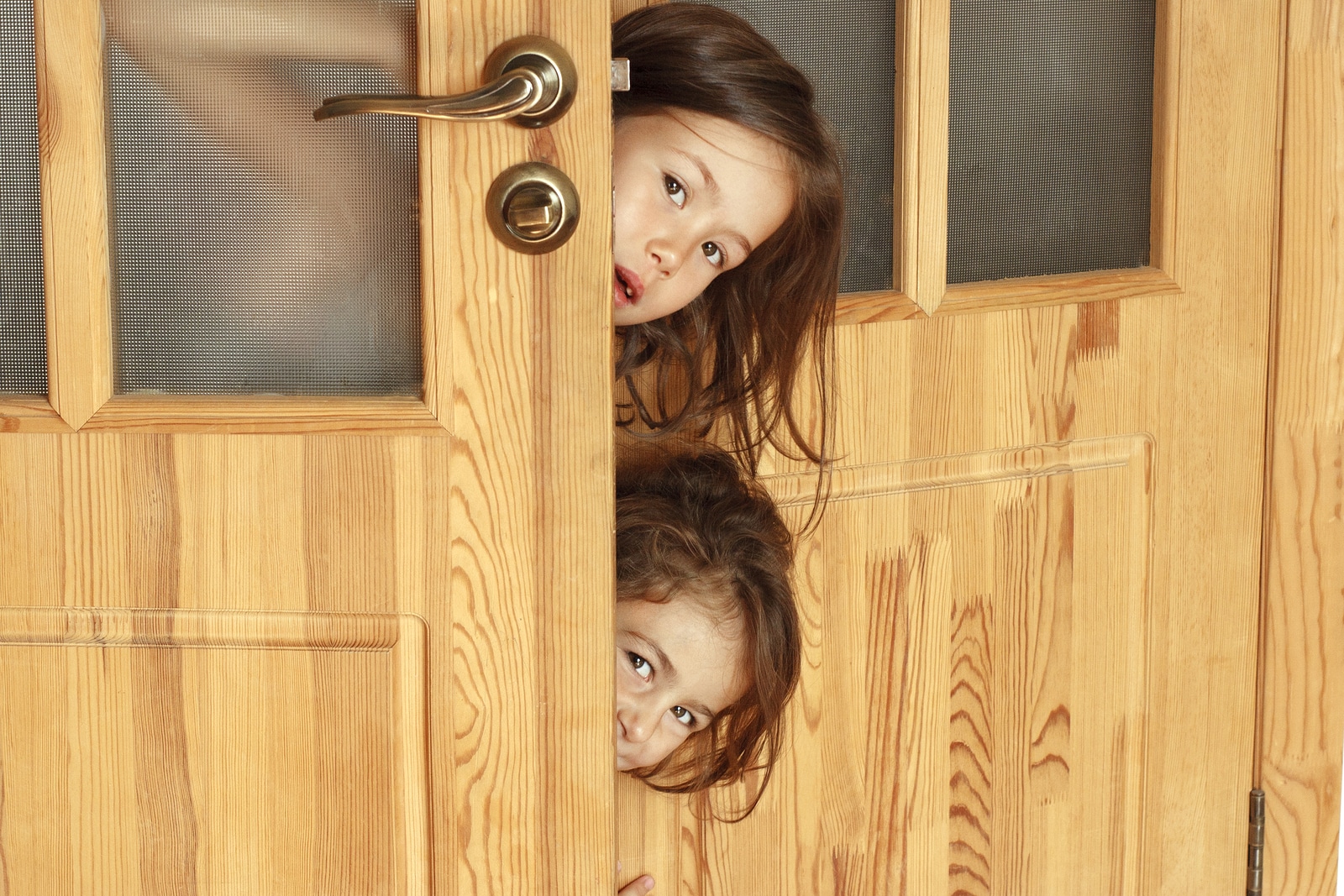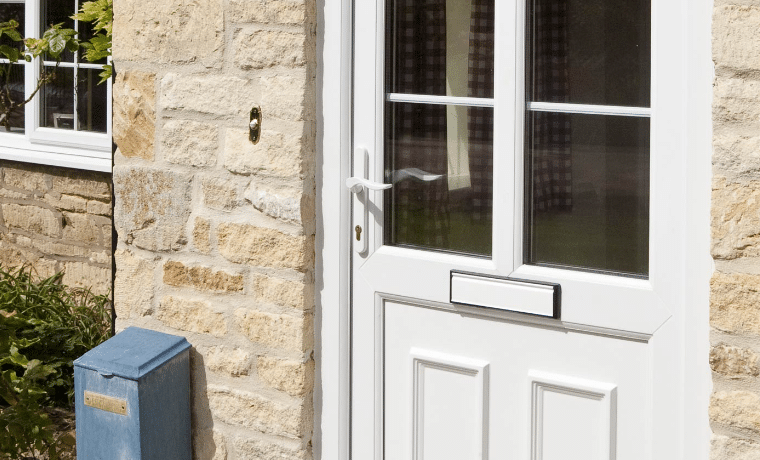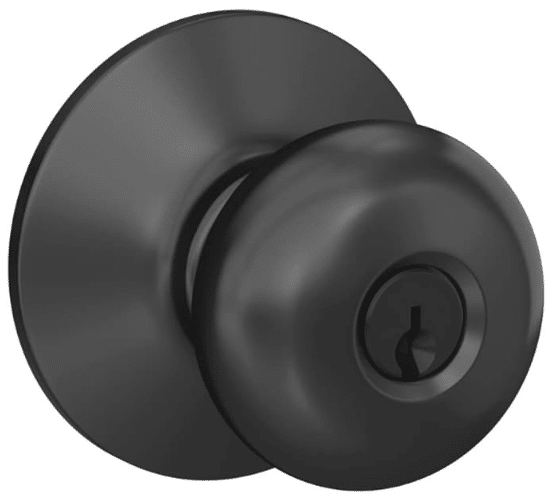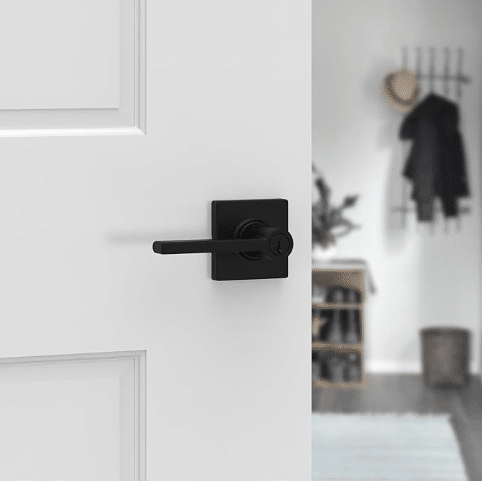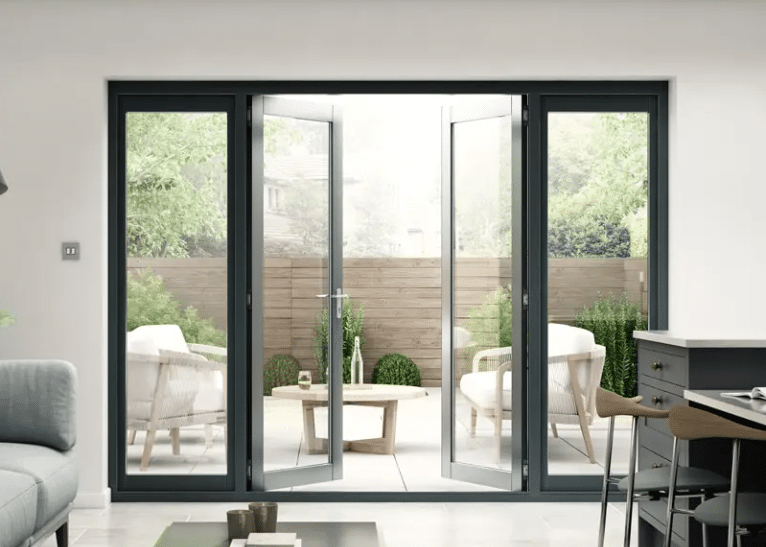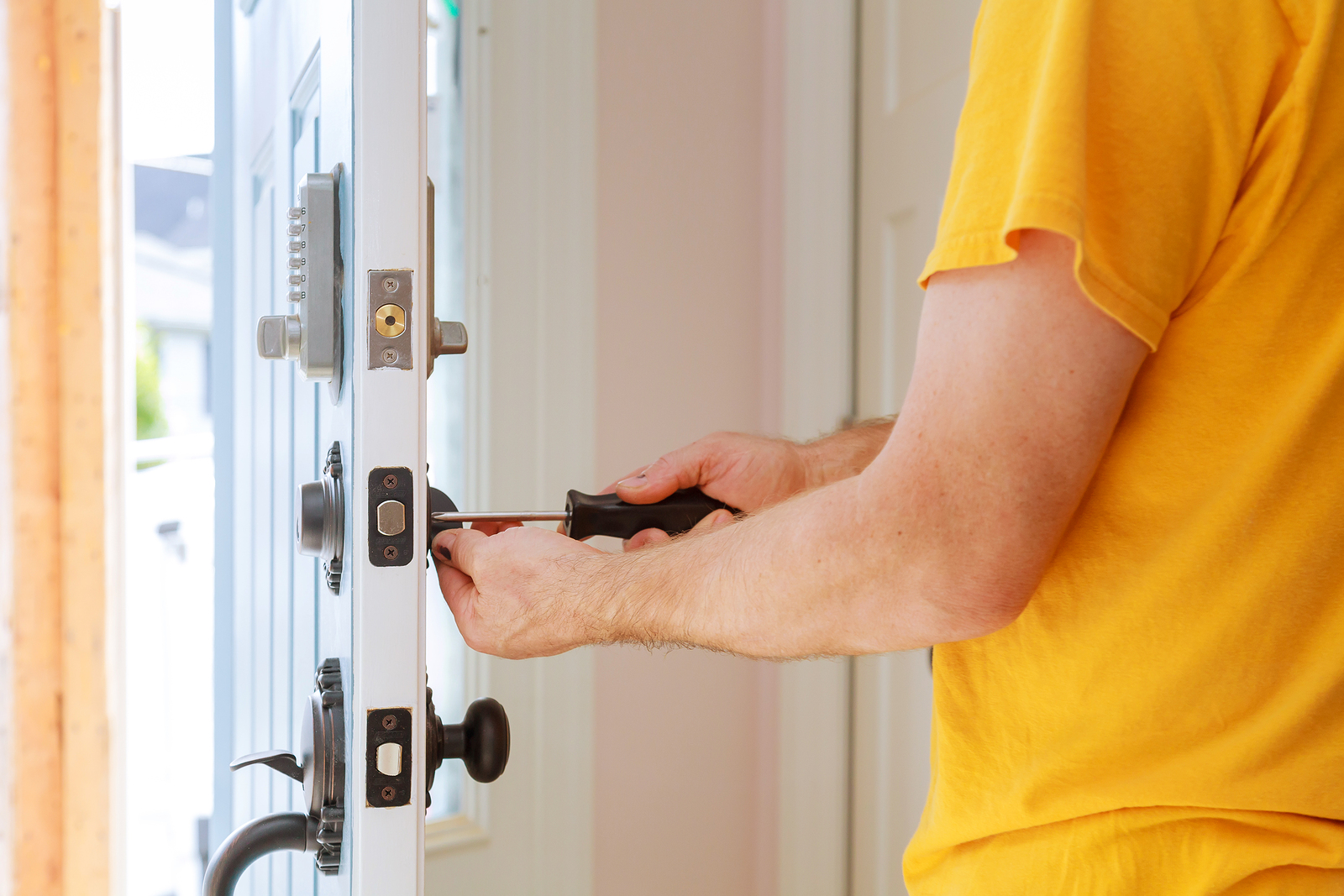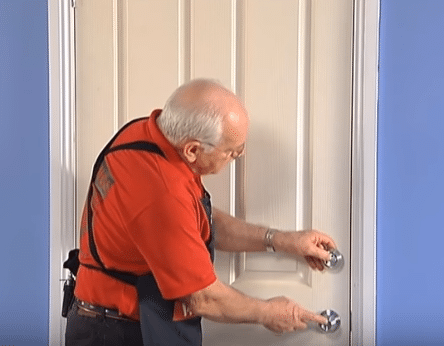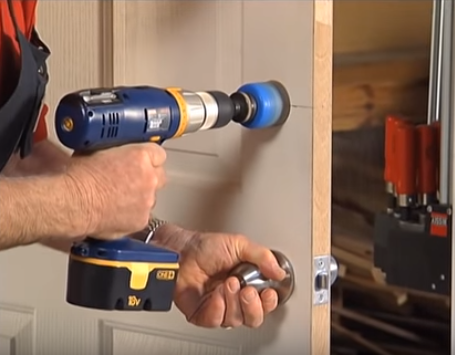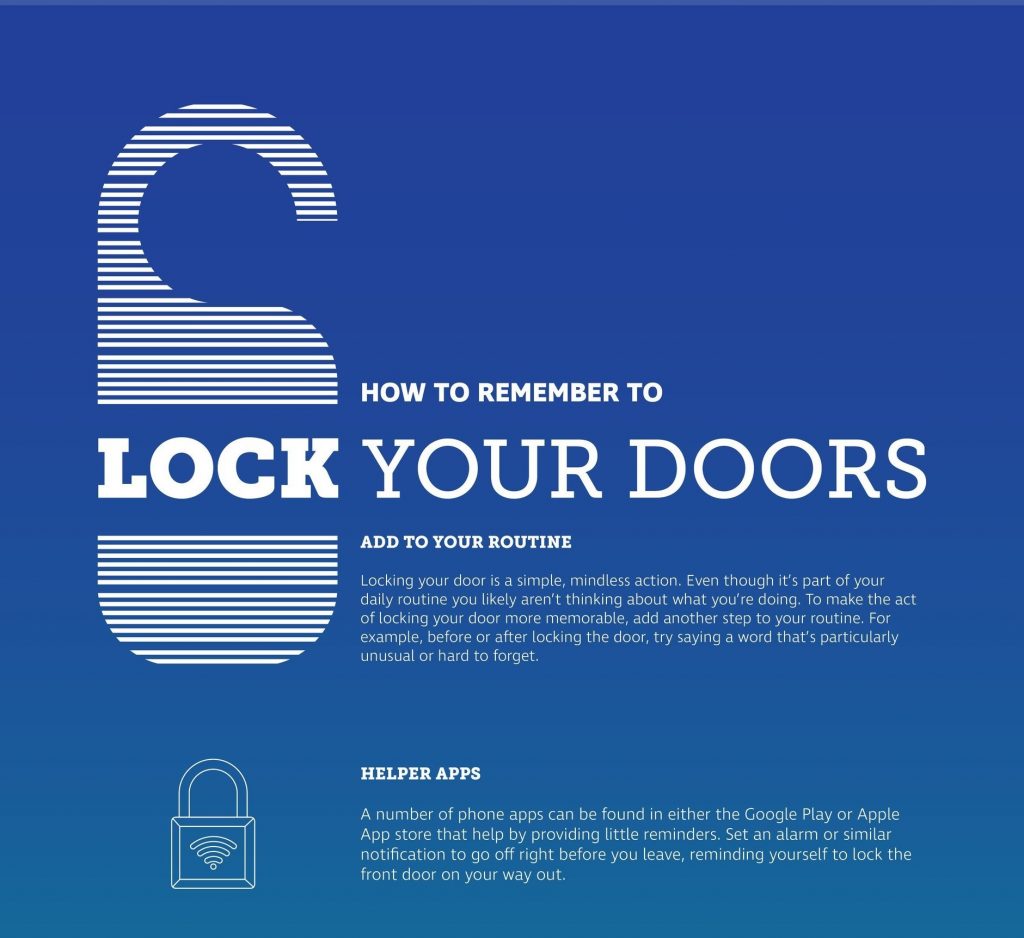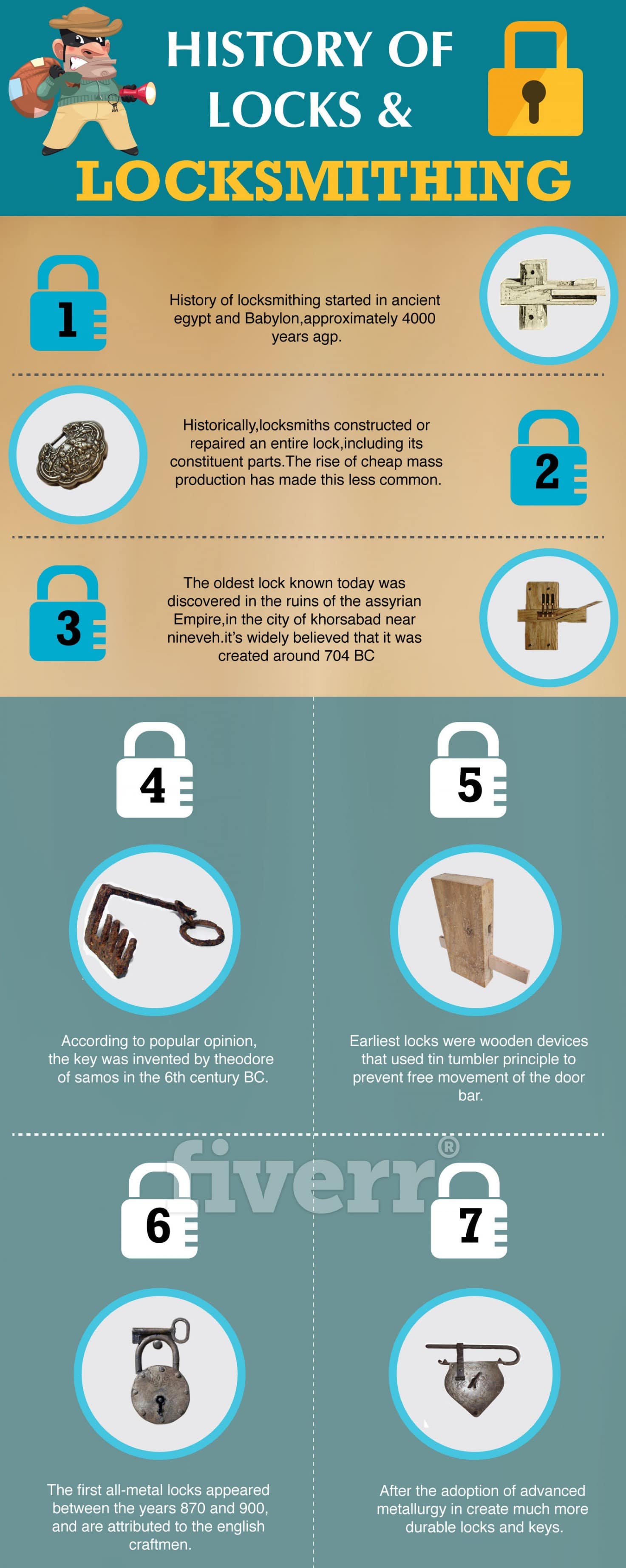Introduction to the Best Door Locks
When it comes to home security, one of the first lines of defense is a reliable door lock. A sturdy lock can not only deter potential intruders but also provide peace of mind to homeowners and residents. With the advancement of technology and design, the market is now flooded with a variety of door lock options, each with its own set of features and levels of security. In this guide, we will explore some of the best door locks available, considering various factors such as security, durability, aesthetics, and smart features.
Mechanical Locks
Traditional Deadbolts
Single Cylinder Deadbolts: Simple and effective, single cylinder deadbolts are operated with a key from the outside and a thumb turn on the inside.
Double Cylinder Deadbolts: These require a key for operation from both the outside and inside, providing extra security but may pose a safety issue in case of an emergency.
Knob Locks and Lever Handle Locks
Knob and lever handle locks are commonly used for interior doors but can also provide a basic level of security for exterior doors.
Mortise Locks
Mortise locks are known for their strength and are often used in commercial settings but can also be used in residential homes for those seeking a higher security level.
Smart Locks
Keypad and Touchscreen Locks
These locks eliminate the need for physical keys and allow users to enter a code to unlock the door. Some models also include features like auto-locking and temporary codes for guests.
Biometric Locks
Utilizing fingerprints or other biometric data, these locks offer personalized security and can often store multiple user profiles.
Bluetooth and Wi-Fi Locks
Smart locks that connect to your smartphone or home network allow for remote access, monitoring, and control of your door lock from anywhere.
High-Security Locks
Multi-Point Locking Systems
These systems engage the door at multiple points, making it extremely difficult to force open.
High-Security Deadbolts
With features like anti-drill, anti-pick, and anti-bump, high-security deadbolts provide an added layer of protection.
Combination Locks
Mechanical Push-Button Locks
These locks require a code to be entered on a push-button keypad, offering keyless entry without the need for batteries or electronic components.
Electronic Combination Locks
Similar to mechanical push-button locks but with electronic components, these locks offer features like backlit keypads and multiple user codes.
Specialty Locks
Sliding Door Locks
Designed specifically for sliding doors, these locks come in various types, such as loop locks, security bars, and double-bolt locks.
Portable Locks
Portable door locks are a temporary solution that can be used while traveling or for additional security on an existing lock.
Smart Home Integration Locks
These locks integrate with home automation systems, allowing for features like voice control, integration with security cameras, and other smart home devices.
When choosing the best door lock for your home, it’s important to consider the level of security you need, the type of door you have, and whether you want traditional or smart features. The locks listed above represent some of the best in their respective categories, offering a range of options for homeowners looking to secure their homes.
Remember to consult with a professional locksmith or security expert when making your final decision, as they can provide valuable advice tailored to your specific needs and ensure that your lock is installed correctly.
Pros of Mechanical Locks:
Reliability:Mechanical locks are known for their reliability. They don’t depend on batteries or power sources, which means they are less likely to fail due to power outages or dead batteries.
Durability:These locks are generally constructed from strong metals and are built to last. High-quality mechanical locks can withstand significant wear and tear over time.
Simplicity:Mechanical locks are straightforward to use. There’s no need to remember passwords or deal with electronic interfaces – a key turn is usually all that’s required.
Low Maintenance:Apart from occasional lubrication and cleaning, mechanical locks require little maintenance. They don’t have electronic components that might need regular updates or repairs.
Cost-Effectiveness:Compared to smart locks, mechanical locks are often more affordable. The initial cost is usually lower, and since they don’t require electricity, there are no ongoing power costs.
Variety of Options:There is a wide variety of mechanical locks available, from simple padlocks to complex high-security deadbolts, offering different levels of security to meet various needs.
Cons of Mechanical Locks:
Vulnerability to Physical Attacks:Some mechanical locks can be vulnerable to physical attacks such as picking, bumping, or drilling. However, high-security mechanical locks are designed to counter these methods.
Key Management:Keys can be lost, stolen, or copied, which can compromise security. Managing keys can be a hassle, especially for locks that require frequent access by multiple people.
Limited Features:Mechanical locks lack the convenience features of smart locks, such as remote access, user tracking, and temporary access codes for guests.
Emergency Lockouts:If you lose your key or if the lock malfunctions, you could be locked out of your home or property, potentially requiring the service of a locksmith.
Complexity in Changing Codes:For mechanical locks that use a code, like push-button locks, changing the code can be a complex process compared to electronic combination locks.
Aesthetics and Design:While there are many designs available, mechanical locks might not offer the same modern or sleek look that some electronic locks provide, which could be a consideration for style-conscious homeowners.
Mechanical locks are a tried-and-true option for securing doors and offer a good balance of security, reliability, and cost-effectiveness. While they don’t have the advanced features of smart locks, their straightforward operation and durability make them a suitable choice for many applications. However, it’s important to select a high-quality mechanical lock that provides adequate protection against common lock-breaking techniques to ensure the best possible security for your home or property.
There are several well-known and respected brands in the mechanical lock industry that have built a reputation for quality, security, and durability. Here is a list of some of the most famous brands of mechanical locks:
- Schlage: With a history dating back over a century, Schlage is one of the most trusted names in the lock industry, known for their wide range of deadbolts, knob locks, lever handles, and smart locks.
- Kwikset: Popular in residential settings, Kwikset offers a variety of lock styles, including their patented SmartKey security, which allows homeowners to re-key their locks easily.
- Yale: One of the oldest international brands, Yale is synonymous with locks, offering a vast selection of locking solutions from traditional mechanical locks to the latest smart lock technology.
- Medeco: A leader in high-security lock solutions, Medeco is renowned for locks that resist picking, drilling, and other forms of attack. They are widely used in commercial and government facilities.
- ASSA ABLOY: The parent company of several lock brands, including Yale and Medeco, ASSA ABLOY is a global leader in door opening solutions and innovative lock technologies.
- Baldwin: Known for their high-quality materials and craftsmanship, Baldwin offers a premium range of door hardware and locks that combine security with elegant design.
- Mul-T-Lock: Specializing in high-security products, Mul-T-Lock provides advanced locking solutions with keys that are difficult to duplicate without authorization.
- Corbin Russwin: A brand with a long history, Corbin Russwin is focused on providing architectural hardware and locking solutions that meet the rigorous demands of commercial and institutional applications.
- Sargent: Offering a range of commercial-grade locks, Sargent is highly regarded for its durable and reliable hardware that is suitable for both commercial and residential use.
- Chubb Locks: A brand with a heritage of over 200 years, Chubb Locks is well-known for its high-security locks and safe solutions, often used in financial institutions and other high-security areas.
- Master Lock: While perhaps best known for their padlocks, Master Lock also produces a variety of other mechanical lock solutions, including door locks and security bars.
- Union: A part of the ASSA ABLOY group, Union offers a variety of locks including mortise locks, cylinder locks, and rim locks, catering to both residential and commercial markets.
These are just a few examples of the many reputable mechanical lock brands available on the market. Each brand has its own unique features and strengths, so it’s important to choose a lock that fits your specific security needs and preferences.
Smart Locks
Keypad and Touchscreen Locks
These locks eliminate the need for physical keys and allow users to enter a code to unlock the door. Some models also include features like auto-locking and temporary codes for guests.
Biometric Locks
Utilizing fingerprints or other biometric data, these locks offer personalized security and can often store multiple user profiles.
Bluetooth and Wi-Fi Locks
Smart locks that connect to your smartphone or home network allow for remote access, monitoring, and control of your door lock from anywhere.
Smart locks represent a modern evolution in home security, integrating technology to enhance the convenience and features of traditional locks. These devices often connect to home Wi-Fi networks or use Bluetooth to interact with smartphones, smart home systems, and other electronic devices. Here’s a closer look at the pros and cons of smart locks:
Pros of Smart Locks:
Keyless Entry:Smart locks often allow for keyless entry, using codes, smartphones, or biometrics, which means no more fumbling for keys or worrying about lost or stolen keys.
Remote Access:Many smart locks can be controlled remotely via a smartphone app, which means you can lock or unlock your door from anywhere, provided you have an internet connection.
User Management:Smart locks typically allow you to create and manage multiple user codes, making it easy to give access to family members, friends, or service providers without the need for duplicating keys.
Access Logs:Some smart locks keep a record of who enters and exits, giving you a clear audit trail of door activity, which can be useful for security purposes.
Temporary Access:You can issue temporary codes or digital keys for guests, which is particularly handy for short-term rentals or allowing access to workers without compromising your overall security.
Integration with Smart Home Systems:Smart locks can often be integrated with other smart home devices, enabling features like automatic locking when you leave home, voice commands via smart speakers, or unlocking when a smoke alarm is triggered.
Customizable Features:With smart locks, you can often customize features to suit your needs, such as setting auto-lock timers, notifications for when the door is unlocked, and other smart alerts.
Cons of Smart Locks:
Dependence on Power:Smart locks require power to function, which means they can be affected by dead batteries or power outages. However, many smart locks have low-battery alerts or backup power options.
Security Concerns:While smart locks use encryption, any device connected to the internet potentially has vulnerabilities. There’s a risk, albeit small, of hacking or unauthorized access.
Complexity:Smart locks can be more complex to install and use compared to traditional locks, particularly for those who are not tech-savvy.
Cost:Smart locks are generally more expensive than mechanical locks, both in upfront costs and, potentially, in long-term maintenance if they require professional servicing or battery replacements.
Compatibility Issues:Some smart locks may not be compatible with all door types or existing home automation systems, which can limit your options or require additional investment.
Over-reliance on Technology:For those who prefer simplicity or have concerns about too much technology in their lives, smart locks may represent an unwelcome complication.
Smart locks offer a high level of convenience and advanced features that can enhance the security and functionality of your home. The ability to control access remotely, manage multiple users, and integrate with other smart devices provides a significant upgrade over traditional locks. However, these benefits come with increased complexity, potential security risks, and a higher price tag. When considering a smart lock, it’s important to evaluate the features offered, the credibility of the manufacturer, and the overall security needs of your household to determine if a smart lock is the right choice for you.
List some of the well-known smart locks available on the market today. These smart locks are popular for their advanced features, such as remote access, integration with smart home systems, and enhanced user management capabilities:
- August Smart Lock Pro: This lock is known for its easy installation and compatibility with most single-cylinder deadbolts. It allows users to control access remotely and integrates with many smart home systems.
- Schlage Encode: Schlage offers this Wi-Fi-enabled smart lock that doesn’t require a hub. It features built-in alarm technology and the ability to create and manage up to 100 access codes.
- Yale Assure Lock SL: Featuring a sleek touchscreen keypad, this lock can be integrated with various smart home platforms and allows for keyless entry with the option to use a physical key as a backup.
- Kwikset Kevo Touch-to-Open: This smart lock offers touch-to-open convenience with Bluetooth technology and is also compatible with a variety of smart home systems.
- Nest x Yale Lock: A collaboration between Nest and Yale, this lock features keyless deadbolt access, remote locking and unlocking, and integration with the Nest smart home ecosystem.
- August Wi-Fi Smart Lock: The latest iteration of August’s smart lock lineup includes built-in Wi-Fi, negating the need for an additional bridge to connect to your home network.
- Ultraloq U-Bolt Pro: This lock offers six different methods of entry, including fingerprint and anti-peep keypad, and is known for its robust feature set and versatility.
- Eufy Smart Lock Touch: Eufy’s offering includes fingerprint recognition technology and the ability to unlock your door via the Eufy Security app.
- Level Lock Touch Edition: Known for its minimalist design, the Level Lock replaces your existing deadbolt and allows you to touch the lock to gain access, use a key card, or control it with your smartphone.
- Lockly Secure Pro: This lock features a patented PIN Genie touchscreen that shuffles number locations and offers both fingerprint access and offline access codes.
- High-security locks are designed to provide maximum resistance against common and sophisticated methods of forced entry, such as picking, drilling, bumping, and unauthorized key duplication. These locks often come with features like hardened steel inserts, anti-drill plates, complex keyways, and patented key control systems. While they are a popular choice for commercial properties, government buildings, and residential users who demand a higher level of security, they do have their pros and cons.
Pros of High-Security Locks:
Enhanced Protection:High-security locks are constructed with strong materials and complex mechanisms that make them highly resistant to physical attacks and tampering.
Key Control:Many high-security locks have patented key systems, which means that key blanks are controlled by the manufacturer, and duplication is restricted to authorized dealers and requires identification or a security card.
Pick and Bump Resistance:These locks are engineered to be highly resistant to lock picking and bumping, two common techniques used by burglars to compromise standard locks.
Durability:High-security locks are built to last and can withstand extreme weather conditions and heavy use, making them ideal for high-traffic areas.
Versatility:They come in various forms, including deadbolts, padlocks, and cylinder locks, ensuring there is a high-security option for nearly every type of door or security need.
Peace of Mind:Knowing that your property is secured with a lock that meets stringent security standards can provide significant peace of mind.
Cons of High-Security Locks:
Cost:High-security locks are more expensive than standard locks, both in terms of initial investment and potential costs for key duplication or lock servicing.
Limited Availability:Due to the restricted nature of high-security key blanks and components, it may be more difficult to find service providers or retailers for these locks, especially in remote areas.
Complexity:The installation of high-security locks can be more complex, often requiring professional locksmith services, which adds to the overall cost.
Overkill for Some Users:Not everyone requires the level of security provided by high-security locks. For some residential users, standard locks may provide sufficient protection without the additional cost.
Weight and Size:High-security locks, especially padlocks, can be significantly heavier and bulkier than standard locks, which might not be suitable for all applications.
False Sense of Security:While high-security locks provide excellent protection against certain types of attacks, they are not a standalone solution. Comprehensive security should include additional measures like alarm systems, surveillance, and good practices.
High-security locks are an excellent choice for anyone looking to enhance the security of their property significantly. They are particularly well-suited for environments where the risk of unauthorized entry and security breaches is high. However, the cost and complexity associated with high-security locks mean they may not be the best fit for everyone. It’s important to assess your specific security needs, the value of what you’re protecting, and whether the benefits of a high-security lock justify the investment for your particular situation.
Combination locks are a type of locking mechanism that opens with a sequence of symbols or numbers rather than a traditional key. They can be found in both mechanical and electronic forms. Here are some of the pros and cons associated with combination locks:
Pros of Combination Locks:
Keyless Convenience:Combination locks do not require keys, which eliminates the problems associated with lost, stolen, or duplicated keys. This can be particularly convenient for situations where multiple people need access.
Easy to Share Access:The combination can easily be shared with others, allowing for temporary or permanent access without the need to physically exchange keys.
Changeable Codes:Many combination locks allow the owner to reset the code as needed, enhancing security, especially if the code has been shared widely or there is a suspicion that it has become compromised.
Multiple Styles and Applications:Combination locks are available in a variety of styles for different purposes, including padlocks, door locks, safes, and lockboxes.
Durability:Mechanical combination locks, in particular, are often very durable and resistant to harsh weather conditions, making them suitable for outdoor use.
Security:Combination locks can offer a high level of security, especially those designed with features to resist tampering, such as false gates or anti-shim technology.
Cons of Combination Locks:
Forgotten Combinations:Just as keys can be lost, combinations can be forgotten, which can be a significant inconvenience. This may require a reset (if possible) or the services of a locksmith.
Vulnerability to Guessing:Simple or commonly used combinations can be vulnerable to guessing. It’s important to choose a complex and unique combination that is not easily guessed.
Potential for Observation:Someone with ill intent could observe you entering the combination and later gain unauthorized access. This is known as “shoulder surfing.”
Slower Operation:Entering a combination can be slower than using a key, which might be inconvenient in some situations, such as in an emergency.
Mechanical Wear and Tear:Over time, the mechanical components of a combination lock can wear down, especially if the lock is used frequently, which may cause the lock to malfunction.
Complexity for Some Users:For electronic combination locks, less tech-savvy users may find programming and operating the lock to be complex or intimidating.
Combination locks are a versatile and convenient option for securing property without the need for carrying keys. They are particularly useful in situations where access needs to be shared or where high traffic is expected. However, it’s important to choose a secure, non-obvious combination and handle the lock with discretion to maintain security. For those who may have difficulty remembering combinations or who require quick access, a traditional keyed lock or a smart lock with a keypad and backup key option might be a better choice. As with any security measure, the best choice will depend on the specific needs and circumstances of the user.
Specialty locks are designed for specific applications or to address particular security needs that standard locks may not fulfill. They can range from locks made for certain types of doors, like sliding or pocket doors, to portable travel locks and high-tech biometric systems. Below are some pros and cons associated with various types of specialty locks.
Pros of Specialty Locks:
Customized Security:Specialty locks are tailored to fit unique security requirements or door types, providing an optimal security solution where standard locks may not be suitable.
Versatility:These locks come in various forms to secure different kinds of property, from cabinets and drawers to gates and personal items.
Innovation:Specialty locks often incorporate innovative designs and materials, offering solutions like tamper alerts, reinforced lock bodies, or weatherproofing for outdoor use.
Portability:Certain specialty locks, such as travel locks or bike locks, are designed to be portable, allowing you to secure your belongings on the go.
Enhanced Features:Some specialty locks offer features like biometric access, integration with smart home systems, or alarms for added security.
Cons of Specialty Locks:
Cost:Specialty locks can be more expensive than standard locks due to the specialized design, materials, or technology used.
Limited Availability:These locks may not be as readily available as standard locks and might require purchasing from specialty stores or online retailers.
Replacement and Repair:If a specialty lock is damaged or breaks, finding replacement parts or someone qualified to repair it can be more difficult and potentially more expensive.
Complexity:Some specialty locks, particularly those with advanced technology, can be complex to install and operate, which might not be ideal for all users.
Over-Specialization:In some cases, the specialized nature of the lock might limit its use to very specific situations, reducing its overall versatility.
False Sense of Security:Just because a lock is specialized doesn’t necessarily mean it offers better security. It’s important to assess the actual security features of the lock rather than assuming it’s secure based on its specialized nature.
Examples of Specialty Locks:
- Sliding Door Locks:Designed for patio doors, these locks can include additional bolts or security bars to prevent the door from being forced open or lifted off its track.
- Portable Travel Locks:Compact and easy to carry, these locks can be used to secure hotel room doors or personal items in public spaces.
- Cabinet and Drawer Locks:Used to secure personal documents or valuables at home or in office settings, these locks can come in keyed or combination forms.
- Biometric Locks:These use fingerprints, retina scans, or other biometric data for access, offering a high level of security and convenience without the need for keys or codes.
- Gun Locks:Designed to prevent unauthorized access to firearms, these locks can be key-operated or use a combination mechanism.
Specialty locks serve a valuable purpose in providing security solutions for specific needs or environments. Their innovative features and customized designs can offer enhanced protection and convenience. However, their specialized nature means they may not be the right choice for every situation, and considerations such as cost, availability, and complexity should be taken into account. It’s important to carefully evaluate the security requirements of the item or area you wish to secure and choose a specialty lock that offers the best balance of security, convenience, and value.
The most preferred door locks often depend on the specific needs, preferences, and budget of the user, as well as the intended application (residential vs. commercial). However, some types of locks are widely popular due to their reliability, security features, and ease of use. Here are a few categories of door locks that are commonly preferred by many:
Traditional Deadbolts:
For standard home security, traditional deadbolts are a longstanding favorite. They are known for their simplicity and effectiveness. Brands like Schlage and Kwikset are popular choices, offering a range of deadbolts that provide good security at an affordable price.
Smart Locks:
Smart locks have gained significant popularity for their convenience and advanced features, such as remote access, user tracking, and integration with home automation systems. August, Schlage Encode, and Yale Assure are among the top preferred smart locks due to their ease of use and robust security options.
High-Security Locks:
For those requiring a higher level of security, brands like Medeco and Mul-T-Lock are often preferred. These locks come with features that provide resistance to picking, drilling, and unauthorized key duplication.
Electronic Keypad Locks:
Keypad locks offer a keyless entry option that is preferred by many who don’t want to carry keys or change locks due to lost keys. Schlage and Yale offer highly rated electronic keypad locks that combine convenience with security.
Lever Handle Locks:
In commercial settings or for accessibility concerns, lever handle locks are often preferred. They are easier to operate than knob locks, especially for individuals with disabilities. Brands like Sargent and Corbin Russwin are known for their durable commercial-grade lever locks.
Knob Locks:
While not as secure as deadbolts, knob locks are still commonly used for interior doors. They are one of the most traditional types of locks and are preferred for their familiarity and ease of installation.
It’s important to note that the “best” lock for someone may not be the best for someone else. The choice often comes down to balancing the level of security needed with the desired convenience features and price point. For exterior doors, most people prefer a combination of a good-quality deadbolt for security and either a knob or lever handle lock for convenience, with or without smart lock features based on personal preference and tech-savviness. Always consider consulting with a security professional or locksmith to determine the best lock for your specific needs and circumstances.
The Best Door Locks
Home security is a top priority for most people. With break-ins and theft on the rise in many areas, having a good door lock is one of the best ways you can keep your home secure.
But how can you be sure your locks are strong enough to stop a break-in?
Thankfully, there are many products that can help keep your family safe. If you’re looking for the best door locks on the market, read on.Source
How To Install A Door Lock
In this video, Barry from Bunnings Warehouse demonstrates how to fit a deadlock to a door. He shows what tools are needed to install a lock and then walks through the process step by step in an easy to follow manner.
Door Lock Top Picks
Best Overall: Kwikset 980 Single Cylinder Deadbolt at Amazon
Source
“Resistant to typical break in methods and offers SmartKey tool for a new key.”
Best for Rental Property: Kwikset Smartkey Deadbolt at Home Depot
“BumpGuard and SmartKey security make this a top choice for rental home owners.”
Best Bluetooth Enabled: Kwikset Kevo Touch-to-Open Bluetooth Smart Lock at Amazon
“Key fob assists with the touch open option.”
Best Mortise Lock: Prime-Line E 2293 Mortise Keyed Lock Set at Amazon
“Ideal for storm doors and interior doors.”
Best Touchscreen Deadbolt: Schlage Z-Wave Connect Camelot Touchscreen Deadbolt at Amazon
“Holds up to 30 user codes for individuals to access the home.”
Best High-End: Bio-Matic Fingerprint Silver Right Handle Door Lock at Amazon
“Fingerprint technology gives you the freedom of leaving your house without a bulky set of keys.”
Best Swing Lock: Defender Security U 10308 Swing Bar Lock at Amazon
“A secondary security lock for an extra layer of protection.”
Best Smart Lock: August Smart Lock 2nd Generation at Amazon
“Lock and unlock your door with your smartphone.”
Best Portable Lock: Addalock at Amazon
“Portable lock for temporary living quarters or traveling.”
How To Remember To Lock Your Doors
Here is a guide so you remember to always lock your doors
The History of Locksmiths
The use of door locks dates back to thousands of years ago. These locks have served the same purpose throughout the years, but the lock making technology has kept changing with time.
Source

